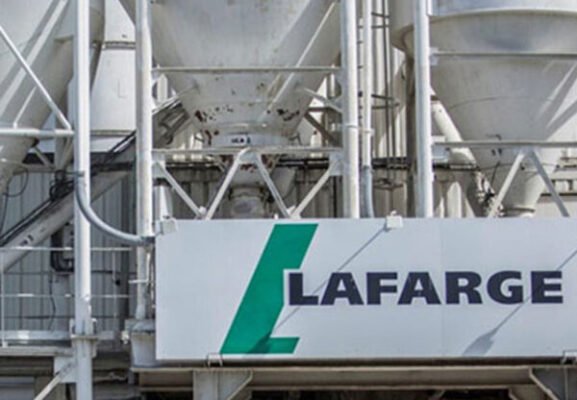LAFARGE Cement Zimbabwe Limited is implementing a US$25 million capital expenditure programme expected to improve the company’s milling capacity and automating the Dry Mortar Mix (DMX) plant.
A statement accompanying the cement manufacturing company’s financial results for the half year ended June 30, 2020, indicates the DMX plant would likely be commissioned before the end of the year.
“The business continues with the implementation of the previously announced US$25 million capital expansion programme.
“This investment is earmarked to improve cement milling capacity and automate the DMX plant.
“In addition to the expected increase in production capacity, the programme will also create infrastructure to improve power supply and cement storage,” said the company.
Currently, the DMX plant is being installed while the Vertical Cement Mill supply contract was signed last month. During the period under review, the business did not have any new borrowings.
However, in April Lafarge successfully registered a legacy debt in line with the Reserve Bank of Zimbabwe (RBZ) Exchange Control Directive of 2019.
The cement producer said it started the year on a satisfactory note with first-quarter volumes marginally exceeding the 2019 comparable period by 1,4 percent.
But the onset of the Covid-19 pandemic lockdown caused a significant drop in the monthly volumes of April by 71,4 percent compared to the same month in the prior year.
“The volumes recovered in May and June 2020, leading to total volumes for the period closing at 14,1 percent lower than the same period last year.
“This performance is largely in line with market trends as there is an overall market decline of 13 percent compared to the same period last year,” it said.
“The rebound continued into July 2020, further narrowing the volumes decline to only 6,4 percent lower than those achieved in the same period to July last year.”
Lafarge anticipates that recovery for the remainder of the year is likely to be slower due to the planned plant shutdown scheduled for the last quarter of the year.
Volumes for the DMX business, however, grew by over 100 percent compared to the same period in prior year.
“This remarkable growth comes ahead of the commissioning of the new DMX mortar plant set for December 2020,” said the manufacturing company.
During the period under review, Lafarge revenue grew by 27 percent to ZWL$1,1 billion (June 2019: ZWL$0,9 billion).
The firm’s cost rationalisation, innovation and efficiency initiatives helped to improve gross profit margins by eight percent to 50 percent (June 2019: 42 percent).
The same initiatives also resulted in an overall decline in the company’s operating costs by 10 percent.
Lafarge’s operations were weighed down by foreign currency shortages, which drove up foreign exchange losses to ZWL$367 million compared to a gain of ZWL$18 million in the same period last year.
“However, the recent policy changes, which include the foreign currency auction have seen improved foreign currency inflows and the company has made significant strides in settling foreign obligations.
“The conclusion of the Blocked Funds registration process strengthened the company’s financial position as foreign denominated liabilities and capex commitments amounting to US$31 million were registered with RBZ.
“The process was concluded in April and the required cash cover of ZWL$31 million was lodged with RBZ,” it said.
In the outlook, Lafarge said as uncertainty about the duration and severity of the coronavirus spread remains high, the World Bank expects the economy to contract by between five percent and 10 percent this year.
“Recent economic data also shows that demand has started to decline in response to these new fundamentals.
“However, there will be new opportunities in the coming year as the economy continues to evolve and adapt to operating in the context of the Covid-19 pandemic.
“With a robust and ambitious strategic agenda in place, as well as the capital investment to support it, the business is poised to mitigate the negative effects of the difficult economic environment and grow shareholder value,”
The Chronicle
.png)




